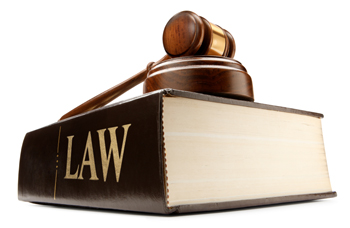Random thought experiment of the day (brought on by HCQ discussions):
In criminal law, the burden of proof lies on the government. The defendant is innocent until proven guilty, rather than guilty until proven innocent.
Where does the burden of proof lie in medicine?
In criminal law, the burden of proof lies on the government. The defendant is innocent until proven guilty, rather than guilty until proven innocent.
Where does the burden of proof lie in medicine?
Is a drug ineffective against a disease until its efficacy proven? Or, does a drug have efficacy until proven ineffective?
More philosophically, what is considered "effective" in medicine? Obviously a perfectly designed RCT, but we don& #39;t always have that.
More philosophically, what is considered "effective" in medicine? Obviously a perfectly designed RCT, but we don& #39;t always have that.
In law, there is a standard of proof: the degree of certainty that the evidence suggests guilt.
- Substantial evidence ("a mere scintilla of evidence")
- Preponderance of evidence (>50% likely)
- Clear & convincing evidence (highly probable)
- Beyond a reasonable doubt
- Substantial evidence ("a mere scintilla of evidence")
- Preponderance of evidence (>50% likely)
- Clear & convincing evidence (highly probable)
- Beyond a reasonable doubt
What amount of evidence in medicine is enough for a doctor to use a drug for a particular disease?
A mere scintilla?
Beyond a reasonable doubt?
We don& #39;t use these terms. We have the laws of nature, rather than the laws of man to follow, which tend to be quite complicated.
A mere scintilla?
Beyond a reasonable doubt?
We don& #39;t use these terms. We have the laws of nature, rather than the laws of man to follow, which tend to be quite complicated.
We use a combination of "evidence" from trials, understanding of pathophysiology & pharmacology, weighing risks/benefits, and clinical gestalt.
Medicine is not bipolar in its outcomes either (innocent vs guilty).
Medicine is not bipolar in its outcomes either (innocent vs guilty).
This thread is not meant to be a comparison of law to medicine. I am by no means a lawyer or even pretend to understand the complexities of the law. There are many false equivalencies here I& #39;m sure, no analogy is perfect.
Merely, I mean to ask, at what point in time in our brains do we say "Let& #39;s use this drug" vs "Let& #39;s avoid this drug"?
#Hydroxychloroquine
#COVID19
#IDtwitter
#Hydroxychloroquine
#COVID19
#IDtwitter
Used this source for legal definitions:
https://www.nolo.com/legal-encyclopedia/legal-standards-proof.html
Appreciate">https://www.nolo.com/legal-enc... any feedback/critiques on this thought experiment
https://www.nolo.com/legal-encyclopedia/legal-standards-proof.html
Appreciate">https://www.nolo.com/legal-enc... any feedback/critiques on this thought experiment

 Read on Twitter
Read on Twitter


